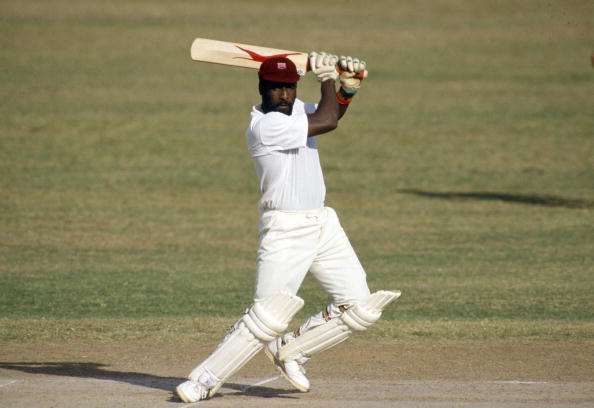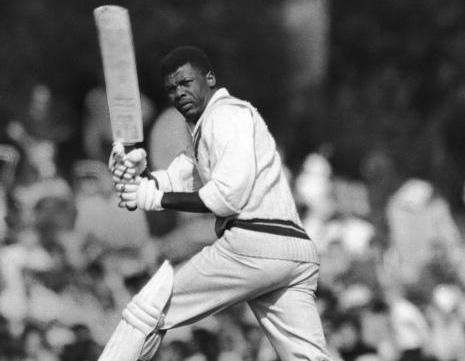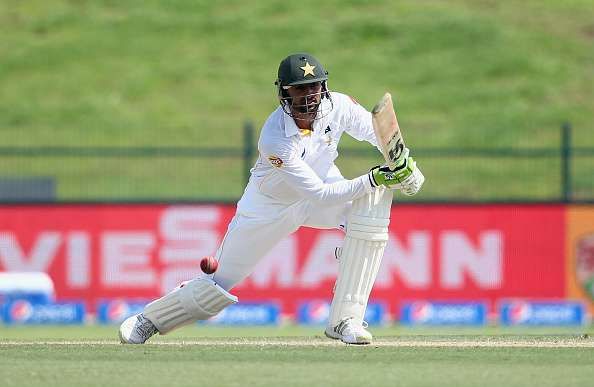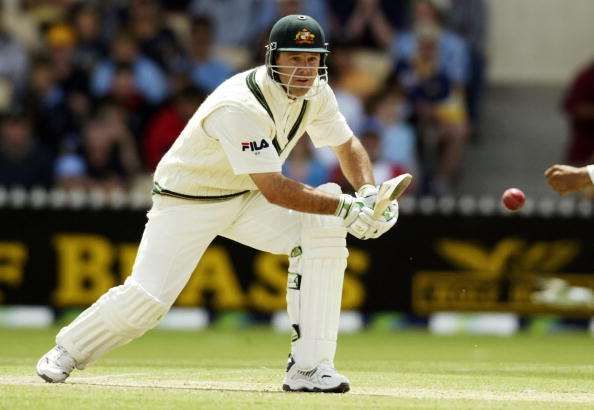Scoring a double century is one of the greatest achievements for a batsman. Some top cricketers never manage to do this in their careers, but a few players have hit double centuries in different formats of the game.
It’s quite unusual when a batsman scores a double century in one innings and then gets out without scoring (a duck) in the next innings of the same Test. This doesn’t happen often, but a few famous players have experienced it.
Here are 5 Best Batsmen who Scored a Duck and a Double Century Test cricket:
1. Vivian Richards – 208 & 0 against Australia, 1984

Isaac Vivian Alexander Richards is considered one of the greatest batsmen ever. His batting skills and powerful presence often intimidated his opponents. During his career, Richards scored several double centuries, but once, after making a double century, he got out for a duck on the very next innings.
In a Boxing Day Test match in 1984 at the Melbourne Cricket Ground, Richards scored 208 runs off 245 balls in the first innings, helping his team total 479 runs. However, in the West Indies’ second innings, he was out for a duck on the second ball, bowled by Craig McDermott.
Despite Richards’ duck, it didn’t affect the match much, as it ended in a draw.
ALSO READ: Take a look at the 10 Teams With Lowest Scores in T20 World Cup History
2. Imtiaz Ahmed – 209 & 0 against New Zealand, 1955

Imtiaz Ahmed, a former Pakistani wicketkeeper-batsman, played regularly for Pakistan’s Test team in the 1950s. Although he was a good batsman, he mostly batted lower down the order. In 41 Test matches, he scored over 2000 runs at an average of nearly 30, with 3 centuries.
His highest score was 209 runs, which he made in the first innings of a Test against New Zealand in Lahore in 1955. This great innings helped Pakistan gain a big lead. After New Zealand batted again, they needed 116 runs to win. Ahmed was moved up to bat at No. 3 during this chase but got out without scoring, thanks to a delivery by John Reid.
Even though Ahmed didn’t score in the second innings, Pakistan still won the match by 4 wickets.
3. Seymour Nurse – 201 & 0 against Australia, 1965

Seymour Nurse was a West Indian cricketer who played 29 Test matches between 1960 and 1969. He was a strong batsman, scoring over 2,500 runs at an average of just under 48. Nurse hit 6 centuries in his career, with his highest score being 258 in his last Test match against New Zealand.
In a Test match against Australia in 1965 in Barbados, Nurse scored a fantastic 201 runs. This helped the West Indies respond to Australia’s huge first innings total of 650 runs. Australia set a target of 253 runs for the West Indies to win. Nurse, batting at number 6, was out for zero runs to medium pacer Neil Hawke.
The match ended in a draw, with the West Indies just 11 runs short of the target when the final day ended.
ALSO READ: Here’s a list of the ten best cricketer in the world 2024
4. Shoaib Malik – 245 & 0 against England, 2015

Shoaib Malik, known mostly as a limited-overs batsman, also played 35 Test matches for Pakistan. Before he retired from Test cricket, Malik had scored nearly 2000 runs with an average of over 35, including 3 centuries and 8 fifties.
He made a return to Test cricket in 2015 after a 5-year break, playing against England. In his first innings back, Malik scored a remarkable 245 runs at the Sheikh Zayed Stadium in Abu Dhabi. However, he couldn’t continue his good form and was dismissed for a duck by James Anderson in the second innings.
Despite Malik’s second-innings duck, the match ended in a draw and his performance didn’t impact the result.
5. Ricky Ponting – 242 & 0 against India, 2003

Ricky Ponting, a former Australian cricketer, is considered one of the greatest batsmen ever. Over his 17-year career, he played 168 Test matches and scored more than 13,000 runs, averaging nearly 52. He made 41 centuries, including several double hundreds.
One of his best innings was in the 2003 series against India at Adelaide, where he scored 242 runs. His performance helped Australia set a total of 556 runs. However, India, led by Rahul Dravid’s 233, came close by scoring 523 runs in their first innings.
In Australia’s second innings, Ponting struggled and was out for a duck after facing 17 balls, thanks to Ajit Agarkar. The rest of the Australian team also failed to score well, and they were all out for 196. India then chased down the target of 230 runs with four wickets remaining, achieving a memorable win.
READ MORE:


